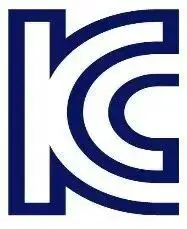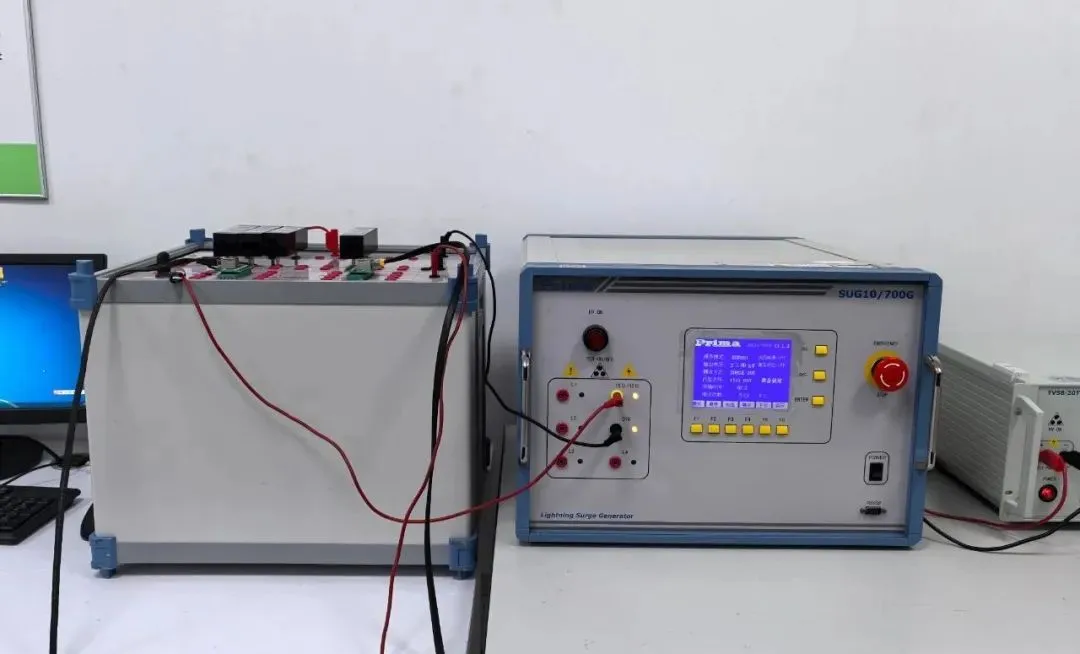
What is Korea KCC certification?
South Korea is one of the most developed markets in Asia. As a resULt, its certification system has undergone significant advancements and changes. Before 2009, there were 13 different certifications, some of which overlapped, with 140 different test scores. With the introduction of the Korean Electrical and Consumer Goods Safety Management Act in 2009, the Ministry of Trade, Industry, and Energy (MOTIE) standardized the certification market into kc certification.

In the KC system, there are categories for consumer goods, children's products, electronics, EMC, KCs (KOSHA, safety), KEMCO (energy efficiency), and MFDS (food and drugs). Some areas define product categories, while others define specific technical characteristics. Therefore, a product may need to undergo multiple tests.
The KC certification process typically includes an application with various forms, product testing (or equivalent test report review), and labeling. KCs certification may also involve factory inspections.
Key facts about KC certification:
- Documents requiRED for KC certification:
- An English translation of the seller’s business registration
- Product name and photo
- Marking information for the product
- Internal reports of the certified product
- Instruction manual
- List of materials used
- List of key raw materials (provided by the customer)
- Certain KC-format documents
KC certification steps:
- Application documents: 1-2 weeks
- Production audit (depending on the region): 1-4 months
- Product testing in Korea or review of existing test reports: 2-6 weeks
- Certification: 1-3 weeks
- Product labeling: Depends on the customer
- If necessary, follow-up testing and audits occur every two years.
KC certification costs:
The application fee is low, but testing fees may increase depending on the certification field.
Please note that testing fees can be very high. Depending on the product type, testing costs can exceed several thousand dollars.
Different product types (even within the same standard) incur further testing costs, and additional application costs arise depending on the product group under other standards.
Which types of products require KC certification?
Even after the standardization of KC certification in 2009, the system remains highly complex due to varying regional and procedural differences (even within the same region). Below is an overview of the main distinctions in the form of an expandable table.
Consumer Goods (General)
Covered product types:
- Household appliances (e.g., refrigerators, dishwashers)
- Audio and video equipment
- Scales
- Fire extinguishers
- Eyeglass frames
- Fans
- Tents
- Motorcycle helmets
- High-visibility warning clothing
Procedural steps:
1. Application
2. Factory inspection (if required)
3. Product testing in an accredited laboratory
4. Certificate validity: 1 year
5. KC marking
6. Regular follow-up testing
Consumer Goods (Automotive)
Covered product types:
- Brake hoses (FMVSS 106)
- Seatbelt devices (UNECE Reg. 16)
- Headlights (UNECE Reg. 98, 112, 128)
- Rear reflectors (UNECE Reg. 3)
- Rear under-voltage protection (UNECE Reg. 58)
- Brake pads (UNECE Reg. 90)
- Rims (UNECE Reg. 124)
- Safety glass (UNECE Reg. 43)
- Rear registration plates for heavy and long vehicles (UNECE Reg. 70)
- Retro-reflective tape (UNECE Reg. 70)
- Warning triangles (UNECE Reg. 27)
- Registration plates for heavy and slow vehicles (UNECE Reg. 69)
Procedural steps:
1. Application
2. Factory inspection (if required)
3. Product testing in an accredited laboratory
4. Certificate validity: 1 year
5. KC marking
6. Regular follow-up testing
Children’s Products
Covered product types:
- Toys
- Textiles for children and infants
- Children’s chairs
- School supplies
- Children’s bicycles
Procedural steps:
1. Application
2. Factory inspection (if required)
3. Product testing in an accredited laboratory
4. Certificate validity: 1 year
5. KC marking
6. Regular follow-up testing
Electronics (Certification)
Covered product types:
High-voltage and high-risk products, including:
- Wires
- Wire harnesses
- Capacitors
- Switches for electrical equipment
- Filters
- Electric power tools
- Fuse holders
- Switches
- Insulated transformers
- Etc.
Procedural steps:
1. Application
2. Factory inspection (if required)
3. Product testing in an accredited laboratory
4. Certificate validity: 1 year
5. KC marking
6. Regular follow-up testing
Electronics (Safety Check)
Covered product types:
High-voltage but lower-risk products, including:
- Electrical switches
- Appliances
- Information technology devices
- Audio and video equipment
- Etc.
Procedural Steps
1. Application
2. Product testing in an accredited laboratory
3. Registration with KATS
4. Certificate validity: Several years
5. KC marking
Electronics (Supplier Compliance)
Covered product types:
Low-voltage products, including:
- Fluorescent lamp starters
- DC power supplies
- Chargers for electrical equipment
- Etc.
Procedural steps:
1. Application
2. Proof of compliance with Korean standards
3. Certificate validity: Unlimited
How is the KC Certification Process Conducted?
The new KC certification process is relatively standardized, although different agencies are responsible for different duties. The minimum procedure includes application and product testing with proof of compliance to Korean standards, while the maximum process includes application, factory inspection, product testing in Korea, labeling, and repeating the process annually (simplified). However, for many products, the process tends to be on the simpler side of this range.
Korea frequently promotes itself as having the cheapest certification costs in Asia. This may be true for purely administrative steps, but be aware that testing fees (whether from the product itself or from an existing recognized test report) can still be relatively high, even compared to European standards.
The "Korea Agency for Technology and Standards" (KATS), under the Ministry of Trade, Industry, and Energy (MOTIE), is responsible for registering your KC certification and setting KC standards. It should be noted that KATS is a member of the International Organization for Standardization (ISO) and the International Electrotechnical Commission (IEC), so Korea’s standards are generally aligned with international standards.
KC certification can be performed at the "Korea Testing Research Institute" (KTR), the "Korea Testing Laboratory" (KTL), or the "Korea Testing Certification" organization (KTC). Korean authorities, including the "National Radio Research Agency" (RRA) and the "Korea Communications Commission" (KCC), handle all EMC-related certifications. Industrial safety certifications (KCs and KOSHA) are conducted by the "Korea Occupational Safety and Health Agency" (KOSHA), the "Korea Gas Safety Corporation" (KGS), or again at the "Korea Testing Laboratory" (KTL).
Email:hello@jjrlab.com
Write your message here and send it to us
 What is the EN 61326-2-3 Standard?
What is the EN 61326-2-3 Standard?
 Why Do Smart Sockets Need IEC 60884 Certification?
Why Do Smart Sockets Need IEC 60884 Certification?
 Why Retest the Device if the 5G Module Already Has
Why Retest the Device if the 5G Module Already Has
 Overview of IEC 62087 Test Standard
Overview of IEC 62087 Test Standard
 CISPR 25 Test Standard Compliance Guide
CISPR 25 Test Standard Compliance Guide
 IEC/UL/CSA 62368-1 Electrical Distance Testing
IEC/UL/CSA 62368-1 Electrical Distance Testing
 Canada Wireless Device IC Certification RSS-210 Te
Canada Wireless Device IC Certification RSS-210 Te
 FCC Part 15.231 for Wireless Remote Controls and S
FCC Part 15.231 for Wireless Remote Controls and S
Leave us a message
24-hour online customer service at any time to respond, so that you worry!




